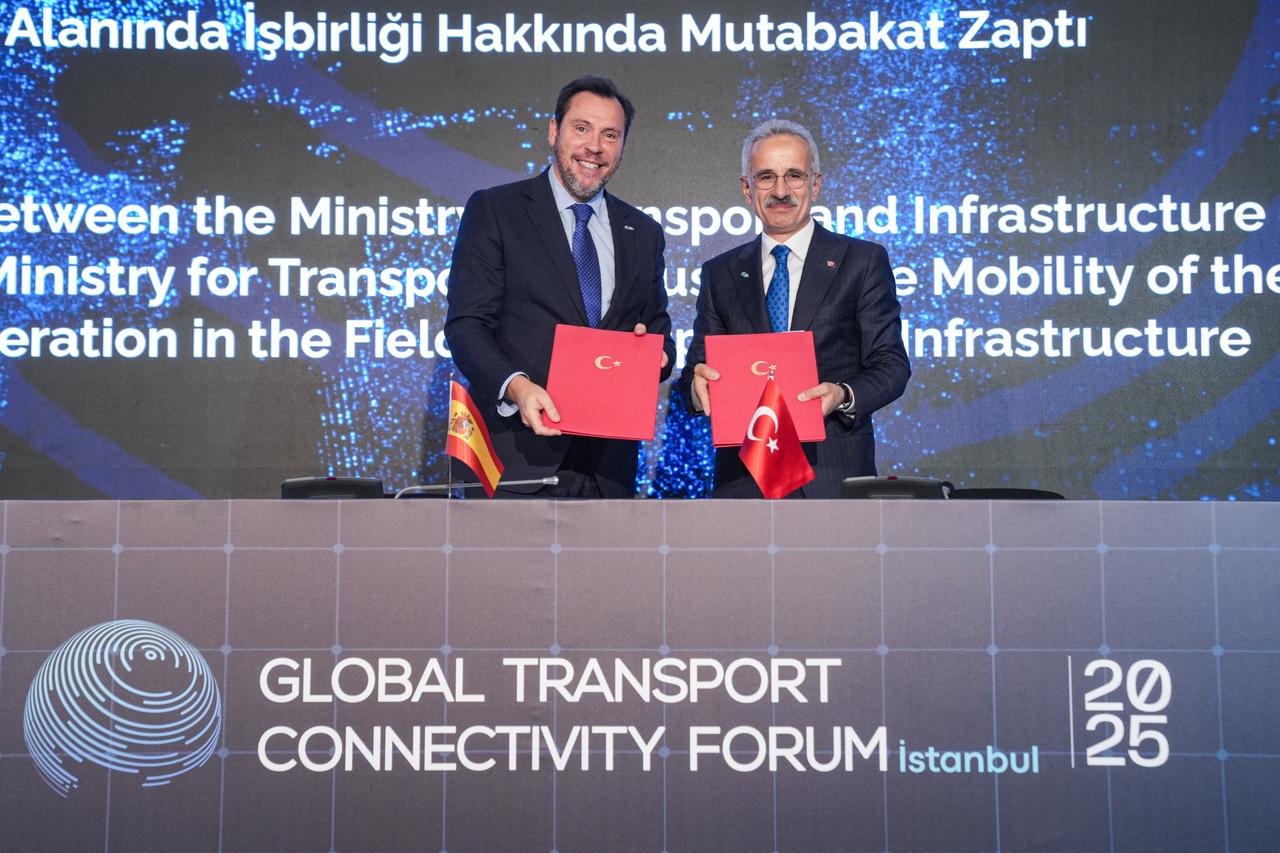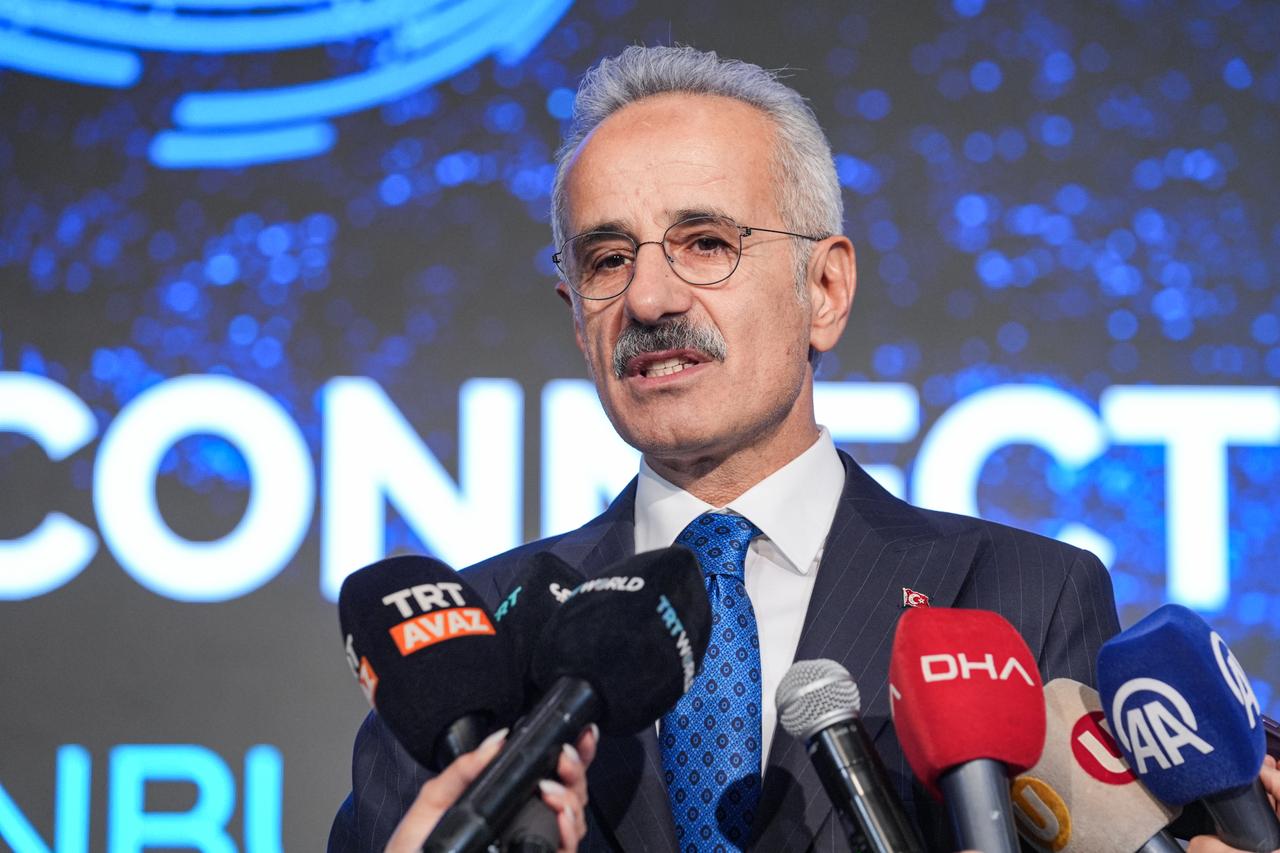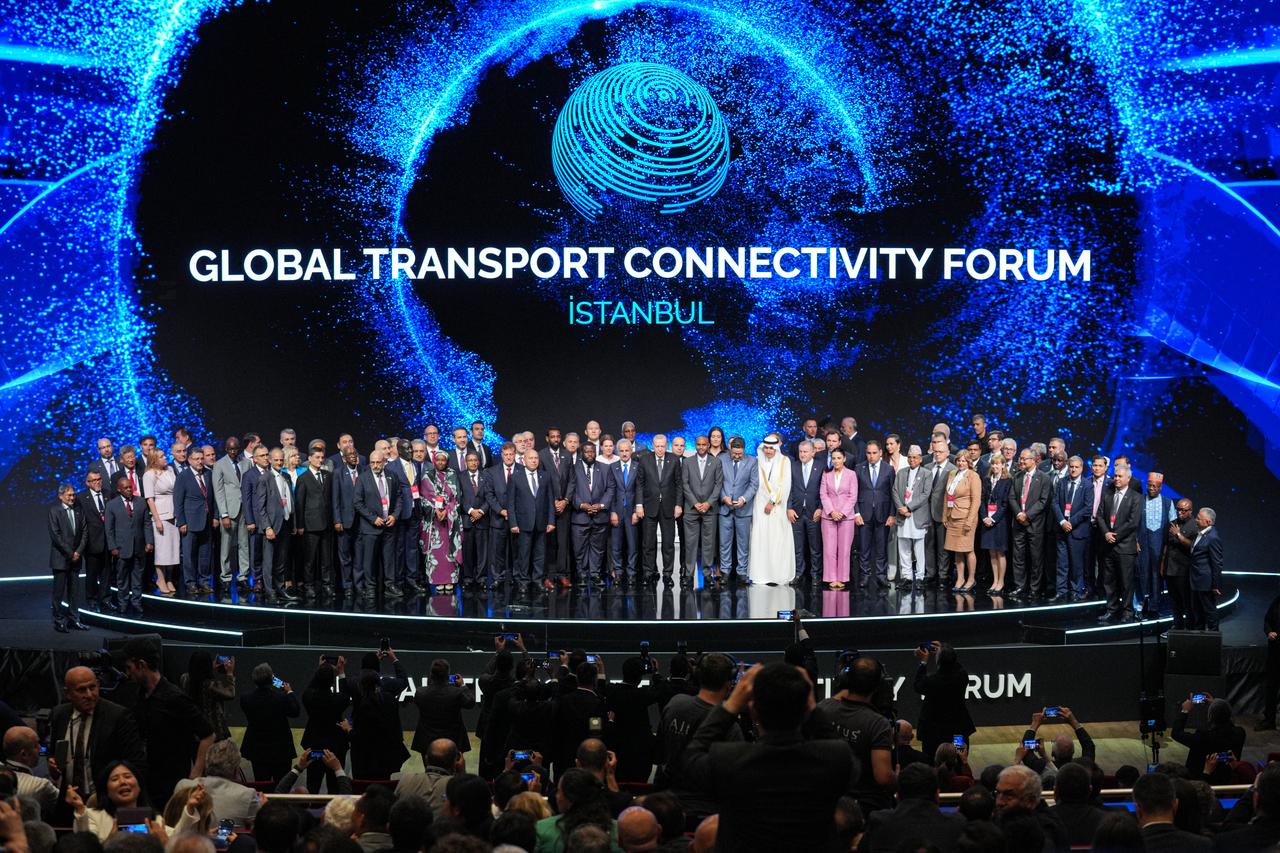
Türkiye's Ministry of Transport and Infrastructure and Spain's Ministry of Transport and Sustainable Mobility signed a Memorandum of Understanding on Cooperation in the Field of Transport and Infrastructure during the Global Transport Connectivity Forum held in Istanbul.
The signing ceremony took place at the Istanbul Congress Center, with Turkish Minister of Transport and Infrastructure Abdulkadir Uraloglu and Spain's Minister of Transport and Sustainable Mobility Oscar Puente Santiago in attendance.
Speaking after the ceremony, Minister Uraloglu said this was the first time the Global Transport Corridors Forum was held in Türkiye. He added that the forum was not only for discussion but also aimed to conclude practical agreements.
"We had previously signed an agreement with Italy on transport and corridors. Now, we have signed a similar agreement with Spain, one of the key countries in Europe," Uraloglu said, adding: "We discussed how we will cooperate on corridors and transport moving forward."
He noted that Türkiye had planned 5–6 new agreements during the forum and that ministers and representatives from around 70 countries were also expected to sign bilateral agreements.

Uraloglu emphasized Ankara's strategic east-west and north-south positioning and said that the country has invested $300 billion in transport infrastructure over the past 23 years.
"Türkiye's geopolitical location is reinforced by being a safe harbor despite tensions in its surroundings. With ongoing conflicts such as Iran-Israel and Ukraine-Russia, Türkiye remains a secure port," he said.
"We evaluate our mission not only for the interests of our country, but also for our neighbors, our region, and our friendly partners," Uraloglu added.
He also said bilateral meetings were held with 12 countries, including Spain, Montenegro, Lithuania, Chad, Djibouti, and Morocco, and that the discussions were productive.
The Türkiye-Kuwait and Germany-Jordan Truck Transport Launch Event was also held as part of the forum. Minister Uraloglu said the project was designed to activate new trade corridors.
"This is a trial run of the Development Road. We are launching the initial project to keep these corridors active," he said, adding: "We will track the trucks departing from Türkiye."
He said the first stage of the corridor would include road transportation through Iraq to Kuwait and Jordan. Iraq’s transit route had been closed since 2003 due to the Gulf War. However, with the country adopting a new trucking system, three vehicles departed on June 25, marking the first direct shipment to Kuwait in 22 years.
Due to the closure of Syria's transit route since 2011, there had also been no direct road transport to Jordan. A vehicle loaded in Germany on June 27 is expected to complete delivery to Jordan through Türkiye and Iraq – the first such trip in 14 years.

Nasser Al Asadi, Senior Advisor to the Iraqi Prime Minister for Transport Affairs, expressed support for Türkiye’s initiative. "We fully support the Development Road and congratulate Türkiye. We look forward to the next steps," he said.
Tatiana Molcean, Executive Secretary of the United Nations Economic Commission for Europe (UNECE), called the forum a success and stated her intention to return next year for the launch of the electronic trucking system.
Umberto de Pretto, Secretary General of the International Road Transport Union (IRU), emphasized the importance of the system for the Iraqi people, highlighting its role in safely delivering goods to global markets.
A joint launch ceremony was organized by the Ministry of Transport and Infrastructure and IRU to mark the reopening of these routes.